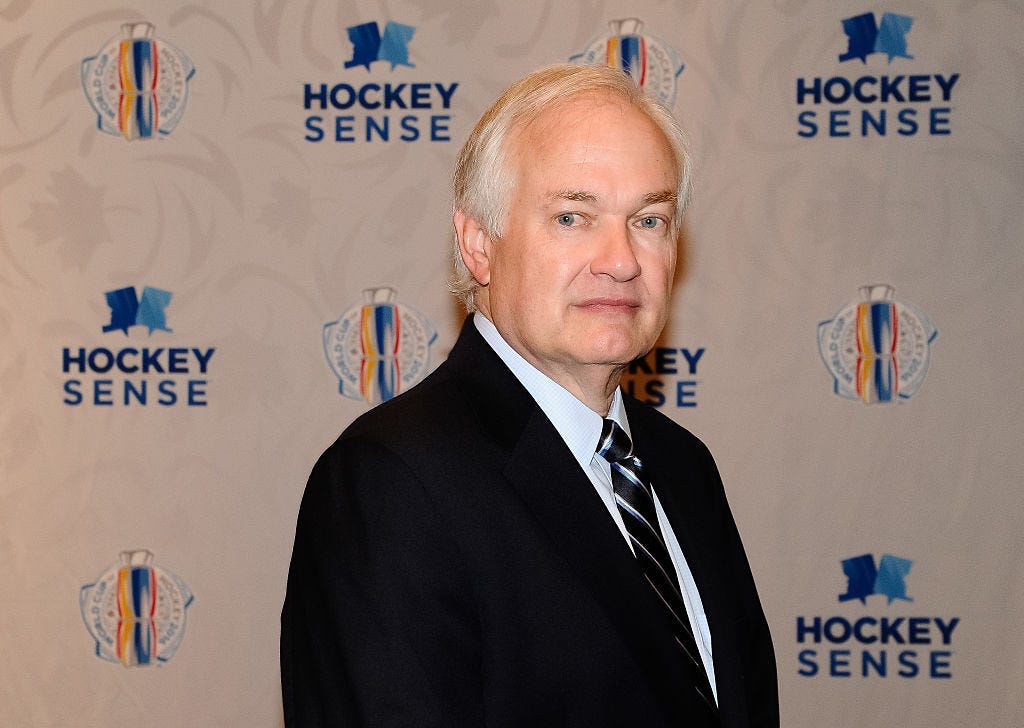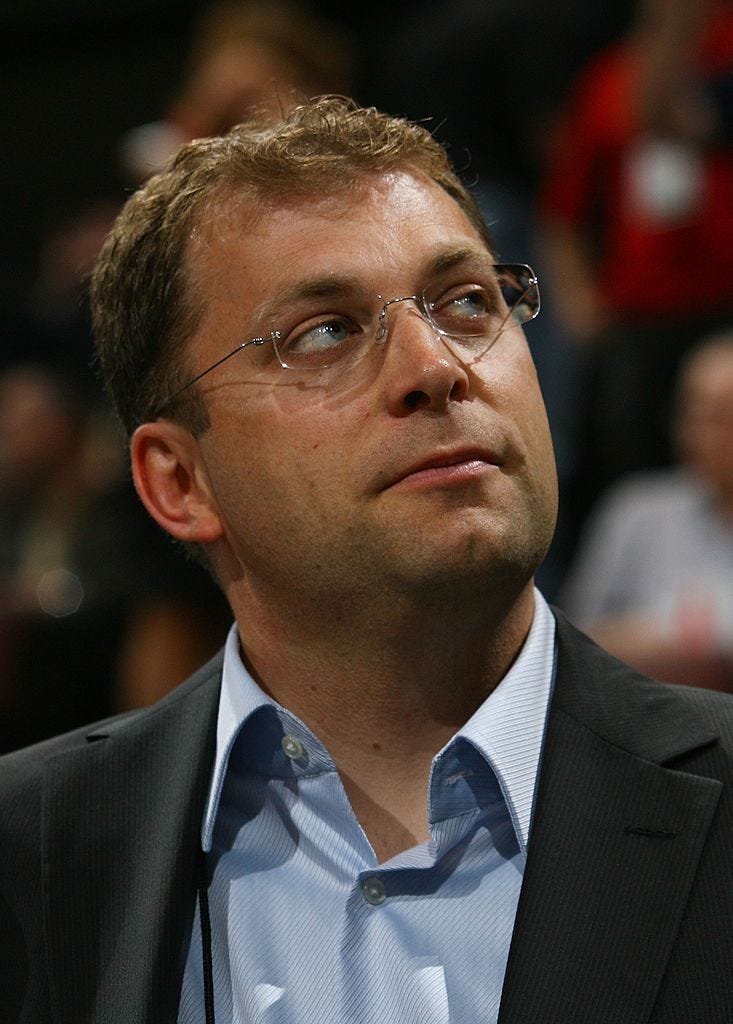Will NHLPA's Fehr be able to keep his job?
The union's executive director will face the 32 player reps who make up the executive board and he'll have a difficult time convincing them that he should stay in his post

NHL Players’ Association executive director Donald Fehr is scheduled to meet today with the 32 representatives of the hundreds of players who employ him, and it’s difficult to imagine a scenario in which Fehr leaves that meeting with his employment status intact. Until now, there had been hope that Fehr would retire on his own terms, thereby becoming the first of the five NHLPA heads in the history of the union to not leave the job under a cloud of controversy.
That prospect doesn’t look terribly good at the moment. There is no indication whether there will be a vote on Fehr’s leadership during or immediately after the meeting, but even if there is not, this is a morass from which Fehr will have difficulty extricating himself. In short, he looks to be in big trouble. Chances are he either loses his job outright or a path to him stepping down will be put into place.
The uncertainty in Fehr’s case surrounds the fact that his involvement and his duty of care in the Kyle Beach sexual assault charges isn’t quite as cut-and-dried as it is with the leadership of the Chicago Blackhawks. First, Fehr did not take over the NHLPA until December, 2010, some seven months after the incident between Beach and Blackhawks video coach Brad Aldrich occurred and less than six months after Aldrich left the Blackhawks organization. Also, when Beach came to the NHLPA with his allegations, he was technically not a member of the NHLPA because he had yet to appear in an NHL game, which is the threshold for membership.
So did Fehr have a fiduciary duty to do more than he did to help Kyle Beach? Legally and technically? Probably not. But morally? Absolutely. The fact that Donald Fehr is the only one of those culpable in all of this to actually say the words, “I’m sorry,” will mean something, but it likely won’t mean enough to the 32 player representatives who comprise the union’s executive board and will have some difficult questions they’ll want answered.
There is the notion out there among some observers that this movement to oust Fehr is being orchestrated by a small cabal of rebel player agents who don’t like Fehr, have never particularly liked him and have been critical of both what they perceive to be top-down leadership and shortcomings of the collective bargaining agreements Fehr has negotiated with the NHL. There’s a feeling that this is the ‘gotcha’ moment for Fehr that will vindicate those who have wanted to see him gone for some time. But the reality is that it’s much bigger than that now. Almost everyone who has had an involvement in this situation has lost his job and it is now time for Fehr to answer for his actions, or more specifically, his inactions.
“If there is any evidence of malfeasance, I would be calling for Donald Fehr’s job,” said one agent, who doesn’t believe Fehr should be dismissed or resign. “But I don’t see it.”
However, this is not about malfeasance. Nobody is suggesting that Fehr did anything untoward. Unlike others, he did not cover up anything. But what he might be guilty of is neglect. According to the Jenner & Block report and his interview with TSN’s Rick Westhead, Beach went to the NHLPA with his allegations and that a confidant of the player spoke to Fehr directly about the allegations. Beach was referred by Fehr to Dr. Brian Shaw with the NHL-NHLPA Player Assistance Program and Shaw met with Beach, but there was little follow-up. Beach’s agent Ross Gurney also told Fehr that Aldrich was working with USA Hockey and was assured by Fehr that he would “look into the situation, and that the NHLPA could offer support.” There is no evidence to suggest there was any follow-up to that conversation. In his interview with Westhead, Beach accused Fehr of “turn(ing) his back on the players when his one job is to protect the players at all costs.”
It should, however, be pointed out that there was really nothing Fehr could have done to protect the players because, as was previously mentioned, Aldrich wasn’t even involved in the NHL by the time Fehr took the job with the NHLPA. So that claim is actually a bit dubious. But what is more troubling is that Fehr apparently did not inform USA Hockey of Aldrich’s involvement in that organization. Had he done that, Aldrich might not have had the opportunity to sexually assault a teenager with a high school hockey team in Houghton, Mich. But even if Aldrich had been dismissed by USA Hockey, who’s to say he wouldn’t have ended up coaching high school hockey anyway?
What this situation required was for someone, anyone, to go to law enforcement authorities and report what was a sex crime. That would have stopped Aldrich in his tracks. The Blackhawks didn’t do it, Fehr didn’t do it, a lot of people didn’t do it. It was not enough for Fehr to simply refer Kyle Beach to a therapist, as well-intentioned as that might have been. Like others, he was guilty of not doing more.
And that’s why it’s going to be extremely difficult for him to keep his job.




